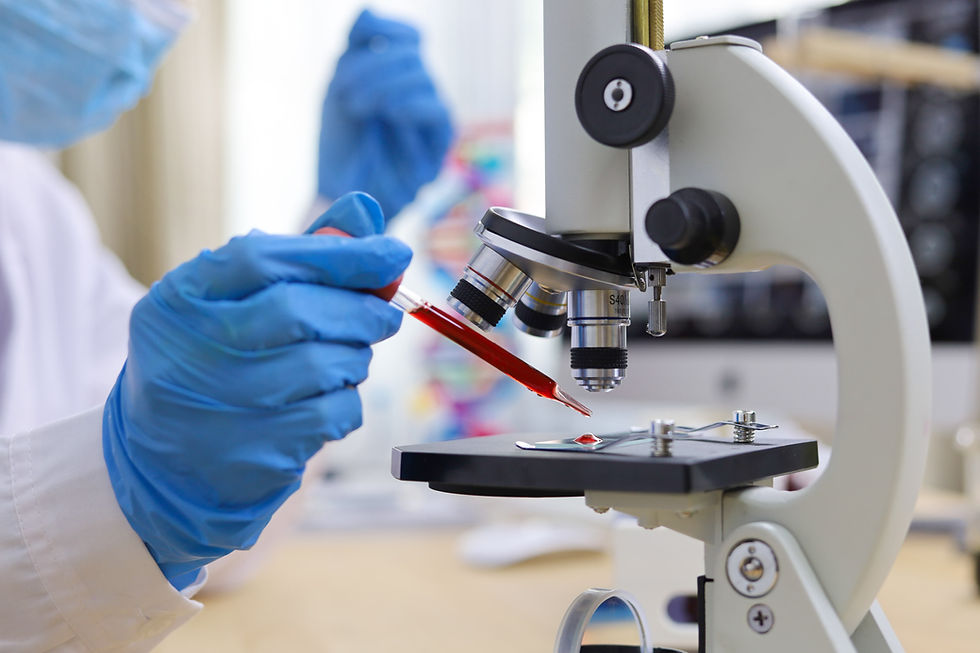Americans develop a method for detecting liver cancer based on a single drop of blood🩸
- HappyNass

- Nov 30, 2022
- 2 min read

American doctors and mathematicians have developed an artificial nerve network algorithm that allows highly accurate detection of liver cancer in a patient by fragments of specific DNA molecules found in his blood samples. This was announced Friday, November 19, by the press service of Johns Hopkins University (JHU).
The assistant professor at the university, Amy Kim, announced that only one-fifth of patients at risk are currently undergoing tests aimed at detecting signs of liver cancer, and the reason for this lies in the lack of availability and low quality of the tests. Our approach will double the number of detected cases of liver cancer and increase the effectiveness of early diagnosis.”
The development of cancer and some other diseases is accompanied by the accumulation of a large number of damaged proteins, DNA chains, and fat molecules in the human body. This "cellular waste" often causes huge problems for humans, and scientists have developed several diagnostic systems that detect tumors by the presence of DNA fragments of cancer cells in patients' bloodstreams.
Kim and his colleagues developed a new test system that can detect a large proportion of liver cancer cases based on the presence of DNA fragments in patients' blood. Scientists created this method by analyzing more than 700 blood samples from healthy people and other carriers of hepatocellular carcinoma, as the most common type of liver cancer.
The scientists decoded the structure of the parts of the genome contained in a single drop of blood and used this data to train a network of artificial nerves that were able to recognize distinctive features in the structure of strands of DNA that entered the bloodstream from liver cancer cells. Scientists tested the operation of this AI system on 200 blood samples from patients suffering from hepatocellular carcinoma and some other acute liver diseases.
These tests showed that the artificial nerve network created by the scientists detected traces of the presence of cancer with 98% accuracy and 88% probability among patients not predisposed to HCC, as well as with 80% accuracy and 85% probability in several high-risk groups. According to scientists, this is much higher than similar indicators of current diagnostic systems, which made the method they developed particularly promising for use in medical practice.
Publish date: 21.11.2022 Source: TASS - https://ar.rt.com/u7ta








Comments